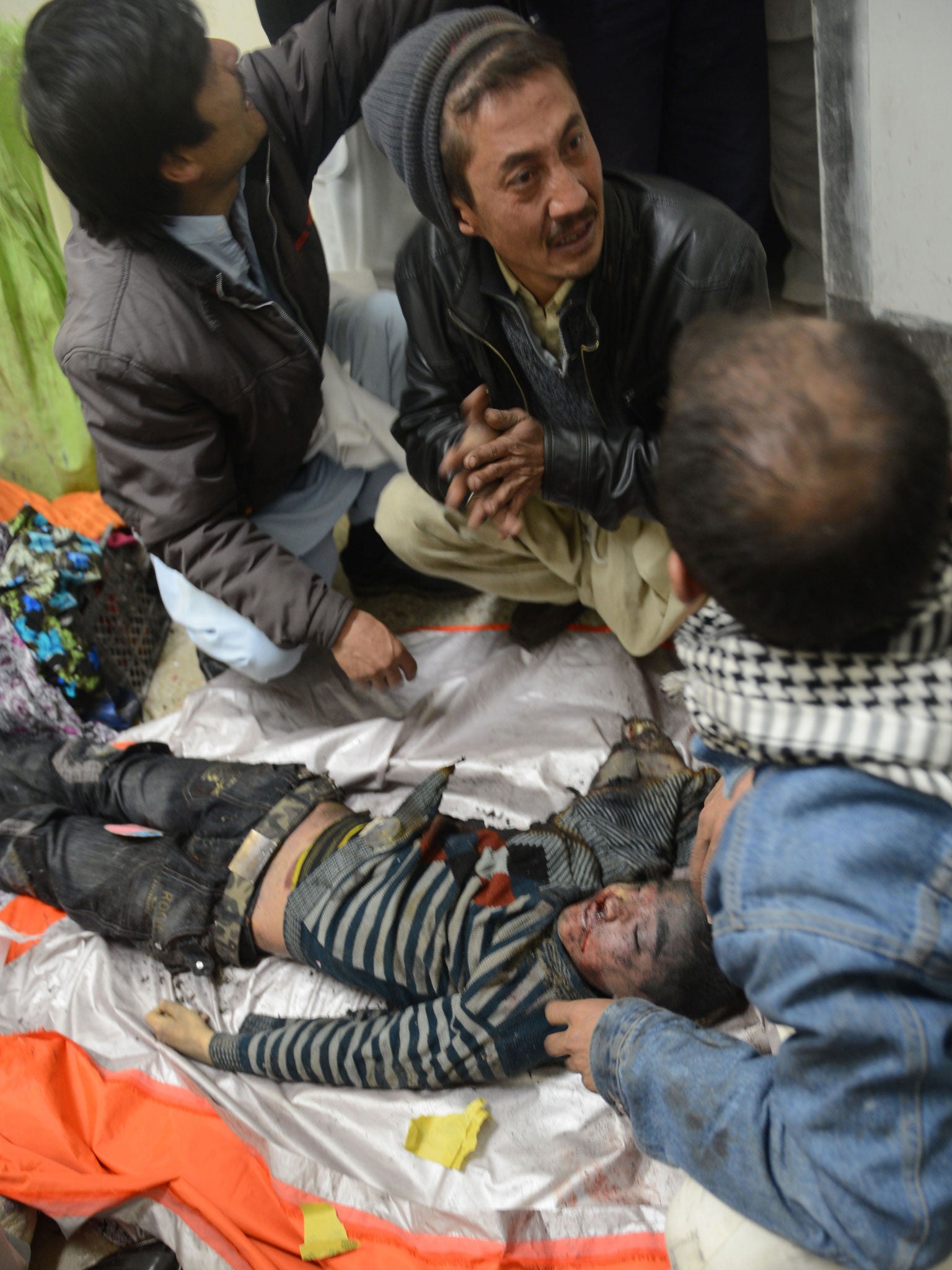Pakistan faces growing anger over sectarian bombings after latest blast
Bomb killed at least 81 in Quetta market

Anger is growing today among Pakistan's Shiites over perceived security failings after a bomb blast killed 81 in a marketplace in Quetta.
Many claim the country's leaders have done little to protect them against increasing persecution by the country's Sunni majority, who see them as heretics and non-Muslims.
On Saturday, Lashkar-e-Jhangvi (LeJ), a ruthless sectarian group, claimed responsibility for the attack in the country's south-west, which deepened suspicions among Shi'ites that Pakistan's intelligence agencies are turning a blind eye to the bloodshed or even supporting extremists.
The bomb, which was hidden in a water tank and towed into the market by a tractor, was remotely detonated. The explosion destroyed shops in the residential suburb and caused a two-storey building to collapse, burying people in rubble.
After the blast, members of the Shiite community took to the city streets in angry protest, blocking roads with burning tyres and throwing stones at passing vehicles.
Some fired bullets at the sky to deter others from the area in case there was another explosion. Insurgents sometimes stagger the explosions to kill people who rush to the scene to help.
A senior security official said today that the death toll could rise as 20 people are critically wounded.
The blast was the deadliest incident in Pakistan since a series of similar bombings in January killed 86 in the same city. That attack led to days of protests that eventually toppled the local government.
After that attack, residents protested against the government's response by refusing to bury their dead for days, camping out on the streets with the bodies in coffins.
After days of protests, Prime Minister Raja Pervaiz Ashraf flew to the city to meet protesters and sacked the chief minister and his cabinet.
Many of the Shiites in Quetta are Hazaras, an ethnic group that migrated over the Afghan border more than a century ago.
Today Nawab Zulfiqar Ali Magsi, governor of Quetta's province, Baluchistan, said: "The terrorist attack on the Hazara Shiite community in Quetta is a failure of the intelligence and security forces."
And Aziz Hazara, vice president of the Hazara Democratic Party, said: "The government is responsible for terrorist attacks and killings in the Hazara community because its security forces have not conducted operations against extremist groups.
"We are giving the government 48 hours to arrest the culprits involved in the killing of our people and after that we will launch strong protests."
"The government knows exactly who is doing what and who is behind all this," said Mohammad Imran, a local trader. "If the government wants (to prevent it), no one can take even a kitchen knife into any market."
About 400 people, including some Sunnis, staged a protest in the capital Islamabad demanding the government to stamp out extremism. Protests were also held in other cities, including Quetta and Karachi.
"There is a law of the jungle, but in this country I think there is not even a law of the jungle," said Syed Abbas Naqvi, a Shiite.
Last year was particularly deadly for Shiites in Pakistan. According to Human Rights Watch, more than 400 were killed in targeted attacks across the country.
Subscribe to Independent Premium to bookmark this article
Want to bookmark your favourite articles and stories to read or reference later? Start your Independent Premium subscription today.

Join our commenting forum
Join thought-provoking conversations, follow other Independent readers and see their replies